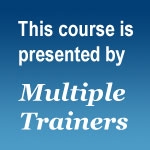

NVC Resources on Feelings
-
In times of conflict, it’s easy to lose touch with ourselves and our needs. In this heartfelt session, Jesse Wiens Chu shares three practical centering practices—rooted in the principles of Nonviolent Communication (NVC)—to help you find your way back to self-connection, empathy, and choice.
-
Trainer Tip: When we withhold our truth or lie, we can create emotional and physical distance in our relationships. By being honest, we can strengthen relationships. And when someone doesn’t appreciate your honesty, try empathizing with them. It can help to notice how your actions stimulate feelings in other people -- even as they are not the cause of their feelings.
-
Along with it’s potential for helping others calm their emotions and feel deeply understood, the Nonviolent Communication process of empathetic listening can help someone increase their capacity for finding their own truth.
-
Grow your compassionate presence with this 3-process exercise. The processes include: Connecting to and feeling the Life Impulse meditation, Creating your own inner space of compassionate presence exercise, and the Compassionately Embracing visualization. These processes will guide you toward deeper self connection and compassionate presence.
-
Why is it so difficult to change our patterns even when we want to, even when we experience shame or despair about them? Arnina Kashtan offers some of the common pitfalls and concrete steps to overcome them in the future.
-
Learn to pause before reacting and gain practical tools to meet conflict with compassion.
-
During the holiday season we may find ourselves taking responsibility for other's feelings, which can lead to guilt, shame, depression, and resentment. These feelings are exacerbated by the habitual pattern we call the "Vortex of Submission" (being hooked by a sense of duty and obligation). Read on for ways to recognize and break the pattern.
-
Learn to navigate conflict without reactivating old pain, bringing peace to yourself and others.
-
When avoidance coping or positive thinking sidesteps challenges, internal and external injustice and unrest also rises as we sidestep our values and integrity. It leaves us in sadness and distress. What's unacknowledged impacts ourselves and others undesirably. To live nonviolently we need to be in touch with what's real. With resonance we can more likely be with what's true, and trust our resilience and inner alignment.
-
Apply NVC mediation skills in child-related conflicts, for parents, teachers, and others.

Quick Links
Subscription Preferences
Stay In Touch!
Looking for ways to keep up with NVC Academy news, get special offers, free resources, or words of inspiration? Here are five ways to stay engaged:










